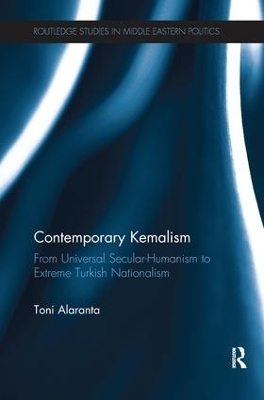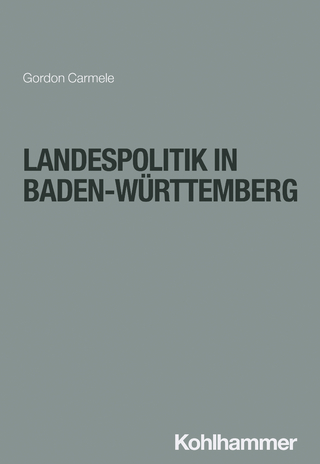
Contemporary Kemalism
From Universal Secular-Humanism to Extreme Turkish Nationalism
Seiten
2016
Routledge (Verlag)
978-1-138-28250-6 (ISBN)
Routledge (Verlag)
978-1-138-28250-6 (ISBN)
This book is concerned with the reproduction of Kemalist ideology in Turkey in the post-Cold War period.
The nature and content of Kemalist ideology in Turkey during the last twenty years is analysed in this book. In order to place the current manifestations of this Turkish official modernising ideology in the two-part context of globalisation and the re-sacralisation of the world, Contemporary Kemalism scrutinises the texts of five prominent Kemalist intellectuals.
After defining the unquestioned ideological premises of Kemalism, such as its implied liberal philosophy of history, and its idea about human nature, the book describes Kemalism’s vision of the ideal society. Kemalism’s close relationship to social democracy and neo-nationalism is then discussed in detail. Also included is an analysis of contemporary Kemalism’s relation to earlier Kemalist articulations. The study demonstrates that various previous assumptions, both Western and Turkish, concerning Kemalism’s nature and content are too simplistic, and thus unable to account for the endurance of this ideology and its continuing relevancy in present-day Turkey.
Inviting the reader to contemplate contemporary Kemalism’s ambiguous relationship with the Western world, this book will be of value to scholars and researchers with an interest in Middle Eastern Politics, Modernization Theory and Political Ideology.
The nature and content of Kemalist ideology in Turkey during the last twenty years is analysed in this book. In order to place the current manifestations of this Turkish official modernising ideology in the two-part context of globalisation and the re-sacralisation of the world, Contemporary Kemalism scrutinises the texts of five prominent Kemalist intellectuals.
After defining the unquestioned ideological premises of Kemalism, such as its implied liberal philosophy of history, and its idea about human nature, the book describes Kemalism’s vision of the ideal society. Kemalism’s close relationship to social democracy and neo-nationalism is then discussed in detail. Also included is an analysis of contemporary Kemalism’s relation to earlier Kemalist articulations. The study demonstrates that various previous assumptions, both Western and Turkish, concerning Kemalism’s nature and content are too simplistic, and thus unable to account for the endurance of this ideology and its continuing relevancy in present-day Turkey.
Inviting the reader to contemplate contemporary Kemalism’s ambiguous relationship with the Western world, this book will be of value to scholars and researchers with an interest in Middle Eastern Politics, Modernization Theory and Political Ideology.
Toni Alaranta received his Ph.D. in 2011 from the University of Helsinki. Currently a research fellow at the University of Tallinn, his main field of interest is Turkish political history. Previous publications include, Kemalism, enlightenment and legitimacy: the reproduction of secularist-national ideology in Turkey, 1930–1980 (2011).
Introduction 1 Outlining the Origins and Suggested Meanings of Kemalism 2 The Presuppositions of Contemporary Kemalism 4 The Kemalist Vision of the Ideal Socio-Political Order 5 Contemporary Kemalism and its Affinities: Social Democracy and Neo-Nationalism 6 the Morphology of Contemporary Kemalism 7 Contemporary Kemalism, Contemporary World
| Erscheinungsdatum | 22.01.2017 |
|---|---|
| Reihe/Serie | Routledge Studies in Middle Eastern Politics |
| Verlagsort | London |
| Sprache | englisch |
| Maße | 156 x 234 mm |
| Gewicht | 453 g |
| Themenwelt | Sozialwissenschaften ► Politik / Verwaltung ► Politische Systeme |
| Sozialwissenschaften ► Politik / Verwaltung ► Politische Theorie | |
| Sozialwissenschaften ► Soziologie ► Spezielle Soziologien | |
| ISBN-10 | 1-138-28250-2 / 1138282502 |
| ISBN-13 | 978-1-138-28250-6 / 9781138282506 |
| Zustand | Neuware |
| Haben Sie eine Frage zum Produkt? |
Mehr entdecken
aus dem Bereich
aus dem Bereich


